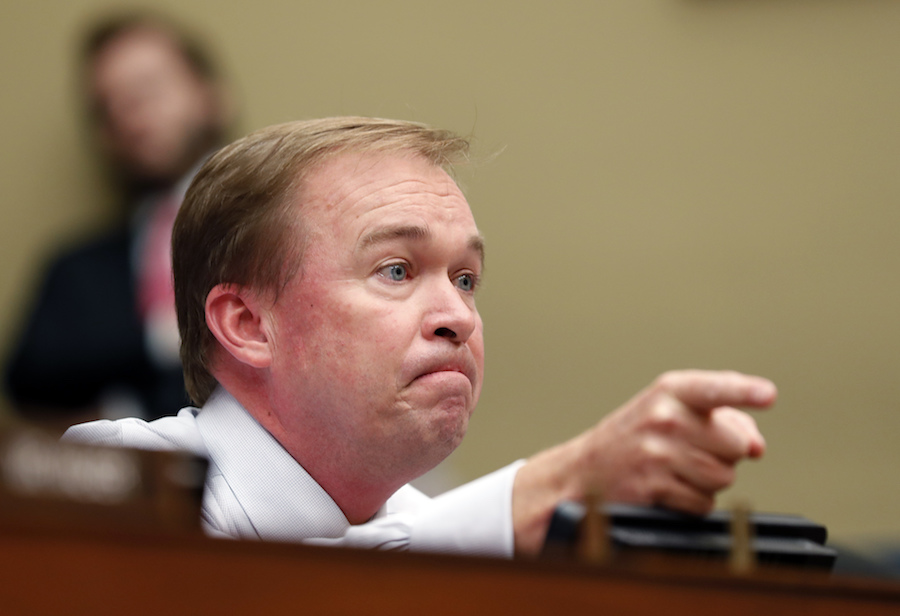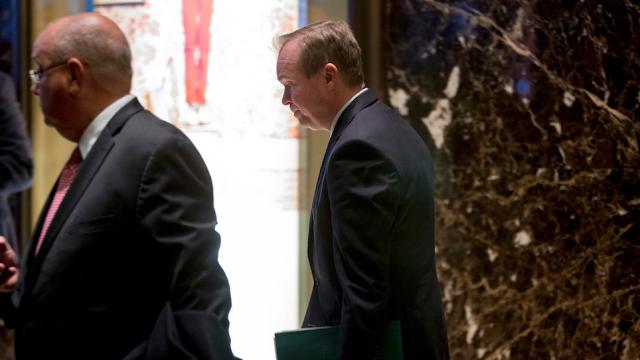Over in the US, the President-elect has chosen South Carolina congressman Mick Mulvaney to lead the Office of Management and Budget. If confirmed, Mulvaney will wield a significant amount of power over virtually every federal agency — and that should make anyone who values science very, very uneasy.
Image: AP
At the moment, Donald Trump’s list of presidential appointments are stocked with rabid anti-science zealots. Climate change denial is practically a prerequisite, and several men who will soon be in charge of the country’s environmental agencies think those agencies should disappear.
Mulvaney’s track record blends in quite nicely: He thinks climate change is a myth, and he has consistently voted against pro-environmental bills. He also voted for a bill that prevented the Environmental Protection Agency from regulating greenhouse gases, and questioned the need for federal funding for Zika research.
There is one key difference between Mulvaney and the rest of Trump’s team of appointments, however. Rather than limiting his damage to one individual agency, Mulvaney gets to defecate on all of them.

Image: AP
The Office of Management and Budget is the largest arm of the executive office of the president, and possesses a correspondingly huge amount of power. It helps develop and execute the federal budget, oversees agency performance and management, and reviews “all significant federal regulations by executive agencies.”
For someone who will soon lord over government funding and the agencies that depend on it, Mulvaney is almost religiously opposed to federal spending. The New York Times notes that he’s totally cool with being part of the “Shutdown Caucus,” because of his “willingness to shut the government down” rather than raise the debt limit. He’s also continuously advocated for cuts to federal spending, and has repeatedly butted heads with his own party on spending issues.
All of this spells bad news for American federal agencies and programs in general, but particularly those in the science, health, and environmental realms. Trump and team have already made clear their opposition to funding entire fields of scientific research — Bob Walker, a senior adviser, even suggested scrapping NASA’s Earth science division. Combine this staggering level of disregard with Mulvaney’s belt-tightening approach to federal spending, and the prospects for government-funded science research appear dimmer by the day.
But some in the scientific community worry that critical regulations, more than anything else, will suffer under Mulvaney. The Union of Concerned Scientists even warned that the appointee was a “dangerous choice.”
“The White House Office of Management and Budget is central to good government — including its role overseeing science-based public health, safety and environmental protections,” Andrew Rosenberg, director of the Center for Science and Democracy at UCS, said in a statement. “[Mulvaney] has backed legislation to change the regulatory process in ways that would give an even stronger influence to industry, increase political interference and undermine science-based decision-making.”
Chief among Rosenberg’s concerns is Mulvaney’s support for bills like the Regulatory Improvement Act of 2015, which would “[create] a commission tasked with eliminating and revising outdated and redundant federal regulations.” Notably, the bill was intent on protecting business interests, and was championed by the National Association of Manufacturers and the National Federation of Independent Businesses, among others.
While slashing “outdated and redundant federal regulations” may sound prudent on the surface, Rosenberg, a former regulator, says it’s often a smokescreen that can be used to block policy measures protecting public health and the environment.
“You can’t overturn the Clean Air Act, so you just mess up the process [by which it’s implemented],” Rosenberg told Gizmodo. He likened it to the battle over reproductive rights: There may not be enough support to overturn Roe v. Wade (yet), but that hasn’t stopped state legislators from inserting procedural roadblocks at every other step of the way.
At the end of the day, Mulvaney’s appointment is yet another signal to the scientific community and those who support it that the next four years are going to be very bumpy.
